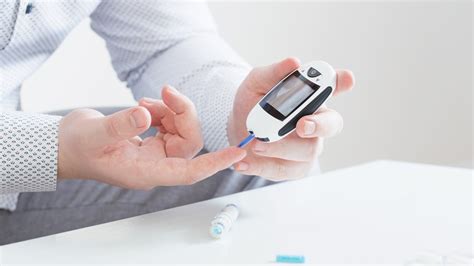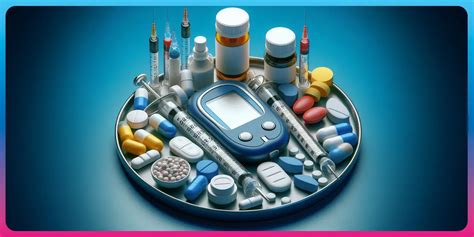Intro
Maintaining optimal blood sugar levels is crucial for overall health and well-being. Blood sugar control is essential for preventing and managing various health conditions, including diabetes, cardiovascular disease, and obesity. In recent years, the importance of blood sugar control has gained significant attention, and it is now recognized as a critical aspect of preventive care. By understanding the importance of blood sugar control, individuals can take proactive steps to maintain healthy blood sugar levels and reduce the risk of related health complications.
The human body relies on glucose, a type of sugar, as its primary source of energy. The body regulates blood sugar levels through a complex process involving the pancreas, liver, and insulin. When blood sugar levels rise, the pancreas releases insulin, which helps to facilitate glucose uptake in cells. Conversely, when blood sugar levels drop, the liver releases stored glucose, known as glycogen, to maintain energy homeostasis. However, when this delicate balance is disrupted, it can lead to blood sugar-related disorders, such as diabetes and hypoglycemia.
Effective blood sugar control requires a multifaceted approach that incorporates lifestyle modifications, dietary changes, and, if necessary, medication. By adopting healthy habits, such as regular physical activity, balanced eating, and stress management, individuals can significantly improve their blood sugar control. Moreover, being aware of the factors that influence blood sugar levels, such as food choices, sleep patterns, and certain medications, can empower individuals to make informed decisions about their health. As the importance of blood sugar control continues to grow, it is essential to explore the various aspects of this critical health topic in greater depth.
Blood Sugar Control Mechanisms

The body's blood sugar control mechanisms are intricate and involve multiple organs and hormones. The pancreas plays a central role in regulating blood sugar levels by producing insulin and glucagon, two hormones that have opposing effects on glucose metabolism. Insulin, often referred to as the "storage hormone," facilitates glucose uptake in cells, thereby lowering blood sugar levels. In contrast, glucagon, the "mobilization hormone," stimulates the liver to release stored glucose, increasing blood sugar levels. The balance between insulin and glucagon secretion is critical for maintaining optimal blood sugar control.
Insulin Resistance and Blood Sugar Control
Insulin resistance, a condition in which the body's cells become less responsive to insulin, is a significant factor in blood sugar control. When insulin resistance occurs, the body produces more insulin to compensate for the reduced glucose uptake in cells. However, this can lead to a vicious cycle, where the body becomes increasingly resistant to insulin, and blood sugar levels continue to rise. Insulin resistance is a precursor to type 2 diabetes and is often associated with other health conditions, such as obesity, hypertension, and dyslipidemia.Dietary Strategies for Blood Sugar Control

A well-planned diet is essential for maintaining optimal blood sugar control. Certain foods, such as whole grains, fruits, and vegetables, are rich in fiber, which can slow down glucose absorption and improve insulin sensitivity. On the other hand, foods high in added sugars, saturated fats, and sodium can exacerbate insulin resistance and worsen blood sugar control. By making informed food choices, individuals can significantly improve their blood sugar control and reduce the risk of related health complications.
Some key dietary strategies for blood sugar control include:
- Eating regular, balanced meals to maintain stable blood sugar levels
- Incorporating protein and healthy fats into meals to slow down glucose absorption
- Choosing whole, unprocessed foods over refined and processed products
- Limiting added sugars, saturated fats, and sodium
- Staying hydrated by drinking plenty of water
The Role of Physical Activity in Blood Sugar Control
Regular physical activity is a critical component of blood sugar control. Exercise can improve insulin sensitivity, reduce inflammation, and enhance glucose uptake in cells. Moreover, physical activity can help individuals maintain a healthy weight, which is essential for optimal blood sugar control. The American Diabetes Association recommends at least 150 minutes of moderate-intensity aerobic exercise, or 75 minutes of vigorous-intensity aerobic exercise, or a combination of both, per week.Monitoring Blood Sugar Levels

Monitoring blood sugar levels is essential for individuals with diabetes or those at risk of developing the condition. By tracking blood sugar levels, individuals can identify patterns and trends, make informed decisions about their diet and exercise, and adjust their medication regimen as needed. There are several ways to monitor blood sugar levels, including:
- Fasting blood glucose tests
- Postprandial glucose tests
- Hemoglobin A1c (HbA1c) tests
- Continuous glucose monitoring (CGM) systems
The Importance of Stress Management in Blood Sugar Control
Chronic stress can have a significant impact on blood sugar control. When the body is under stress, it releases stress hormones, such as cortisol and adrenaline, which can raise blood sugar levels. Moreover, stress can lead to poor food choices, reduced physical activity, and inadequate sleep, all of which can exacerbate insulin resistance and worsen blood sugar control. Effective stress management techniques, such as meditation, yoga, and deep breathing exercises, can help individuals mitigate the negative effects of stress on blood sugar control.Medications and Blood Sugar Control

For individuals with diabetes or those at risk of developing the condition, medication may be necessary to maintain optimal blood sugar control. There are several types of medications available, including:
- Metformin: a biguanide that improves insulin sensitivity and reduces glucose production in the liver
- Sulfonylureas: a class of medications that stimulate insulin release from the pancreas
- Meglitinides: a class of medications that stimulate insulin release from the pancreas
- Thiazolidinediones: a class of medications that improve insulin sensitivity
- SGLT2 inhibitors: a class of medications that reduce glucose reabsorption in the kidneys
The Role of Healthcare Providers in Blood Sugar Control
Healthcare providers play a critical role in helping individuals maintain optimal blood sugar control. By working closely with their healthcare provider, individuals can develop a personalized plan to manage their blood sugar levels, adjust their medication regimen as needed, and monitor their progress over time. Healthcare providers can also provide education and support to help individuals make informed decisions about their diet, exercise, and stress management.What are the symptoms of high blood sugar?
+The symptoms of high blood sugar include increased thirst and urination, blurred vision, fatigue, and slow healing of cuts and wounds.
How can I lower my blood sugar levels naturally?
+Lowering blood sugar levels naturally can be achieved through a combination of dietary changes, regular physical activity, stress management, and getting enough sleep.
What are the risks of uncontrolled blood sugar levels?
+Uncontrolled blood sugar levels can increase the risk of developing complications such as heart disease, kidney disease, nerve damage, and vision problems.
In conclusion, maintaining optimal blood sugar control is crucial for overall health and well-being. By understanding the importance of blood sugar control, individuals can take proactive steps to manage their blood sugar levels, reduce the risk of related health complications, and improve their quality of life. We encourage readers to share their thoughts and experiences on blood sugar control in the comments below and to take the necessary steps to prioritize their health and well-being.
